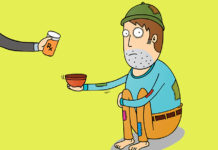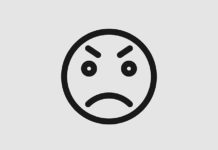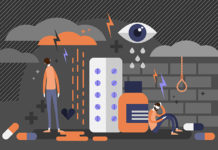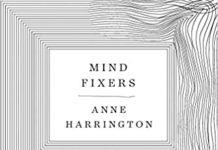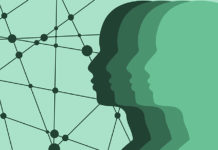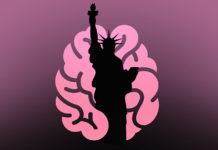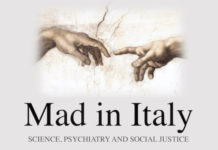Poverty: The Newest Medically Treatable Brain Disease
If your hunger/worries are so severe and persistent that they lead to abnormal, dysfunctional behaviors, then you have clinical poverty. Like any illness, you can’t just snap out of it on your own. You need help, and it’s now here — ask your doctor about exciting new treatments for poverty today!
Creating Our Mental Health
We wanted to challenge the conventional assumption that mental health is a static condition or attribute by suggesting that it’s more useful to think of it as an activity that people do together, rather than a thing that individuals have or don’t have. This distinction matters because we can change what we do — what we are, not so much.
The Mystic of Ireland: An Homage to Ivor Browne
Ivor Browne fearlessly challenged what he saw as a dehumanizing system, liberating many from institutional care and pioneering new experimental therapies. He developed innovative community models and most of his groundbreaking work took place outside of, and in spite of, orthodox thinking.
Collaborative Strategies for Re-Visioning the Public Mental Health System
The beauty of sticking around for a while is that we’re living to see some of our “outsider” ideas beginning to challenge modern psychiatric doctrine in the public arena, and our “radical” mental health stance is slowly re-visioning important conversations and practices.
In Defense of Anger
The therapy industry has aided and abetted the rejection of anger our society is hell-bent on, and made it astoundingly difficult to know what healthy anger looks like. I clawed myself apart trying to “heal” from all this anger, which compounded with every failure to dispel the anger until I was basically a human-shaped sack of rage.
No Graphic Detail: The Injustice of Being Silenced
They tell us we’re too fragile to speak our own truth, and that those around us are too fragile to hear it. If you must name what happened to you, at least slap a “trigger warning” on yourself, and don’t “paint a picture.” Fuck that. The truth is that graphic detail can make some of us stronger in a way that silence never could.
We Must Hear Marianne Williamson’s Message About the Overuse of Antidepressants
Although some of Marianne Williamson's rhetoric on the subject of the overuse of prescription medications may be over the top, the topic deserves much more public attention and debate, since it is a crisis as real as the opioid epidemic.
Brave New Apps: The Arrival of Surveillance Psychiatry
Large, centralized, digital social networks and data-gathering platforms have come to dominate our economy and our culture. In the domain of mental health, huge pools of data are being used to train algorithms to identify signs of mental illness. I call this practice surveillance psychiatry.
Blaming the “Mentally Ill”: This is Hate Speech
As could be expected, in the wake of the mass murders in El Paso and Dayton, we have politicians such as President Trump and others such as E. Fuller Torrey blaming the killings on the “mentally ill.” We have heard this over and over again, and I think it is time to call this out for what it is: Hate Speech.
Antidepressants and the National Suicide Epidemic
We encourage young people to see themselves as fragile creatures whose brains can go haywire for any reason, or no reason at all. Then we tell them they have the “disease” of depression and ply them with drugs with a known link to worsening depression and suicidality going back for decades. How many more will have to die before this changes?
How “Safe Messaging” Gaslights Suicidal People
Suicide prevention constructs a reality in which the problems of suicide lie within suicidal people. Sanity is constructed around wanting to live, insanity around wanting to die. Within this paradigm, the suicidal person can never be trusted. They are fragile, vulnerable, demanding protection, surveillance, and management.
Helping People Come Off Medication—Bad for Business?
The message in journal editorials, comments and opinion articles, is that 'this new study shows great promise' and that 'we need further research'. My interpretation is: 'give us the money and we will be happy to carry this out'. With the implied promise that, once this new research has been done, we will get a better world. Sadly this is rarely ever the case.
Psychiatric Eugenics Then and Now—You Betcha It’s Still Happening
Most are oblivious to the fact that psychiatric eugenics initiatives continued to exist—and beyond that, to flourish—long after the end of what is normally thought of as “the eugenics era” (roughly, late nineteen century to 1945). Sadly, we are not learning from history what we direly need to learn.
An “Even-Handed” History of Psychiatry as Damning as the “Polemics”?
Where Professor Harrington's book seems to differ from books that others might call polemics is that she does not attribute nefarious motives to the psychiatric establishment. I worry that she underplays the ways in which the current model causes harm, but I support her suggestion for a retraction of psychiatry's scope.
We Lost a Giant Today: A Tribute to Janet Foner
Janet Foner, a longtime mental health liberation activist, passed away on July 24, 2019. Many people do not know that Janet helped form the very early Alternatives Conferences in the U.S. and she co-founded MindFreedom International and continued serving on its board to this day. Here we honor her wisdom, tenacity and courage.
Responding to “The Case Against AOT”—Next Steps for Change
Many will direct their efforts toward repealing involuntary outpatient commitment statutes in their states—an extremely challenging and uphill battle—or reforming abuses. Their arguments will be strengthened immensely by the findings in MIA's report. What follows are suggestions about what kinds of interventions to consider.
The Chemical Imbalance Theory: Dr. Pies Returns, Again
Psychiatrist Ronald Pies published a recent piece in the Psychiatric Times titled "Debunking the Two Chemical Imbalance Myths, Again." The subtitle: "A little learning is a dangerous thing." And indeed it is. But not nearly as dangerous as a psychiatrist with a head full of spurious diagnoses and a ready prescription pad.
An Open Letter to Howard Stern, the “Poster Boy for Psychotherapy”
Dear Howard Stern: What may come as a surprise to you is that the quality of talk therapy that was available to you—time-intensive, in-depth sharing of feelings, exploring childhood traumas, examining and changing difficult personality traits—is steadily becoming unavailable to the average American.
End Kendra’s Law Now: Racist, Classist Practices in Involuntary Psychiatry Persist
In addition to involuntary outpatient commitment being an assault on and targeting people who are living in or near poverty, the statistics demonstrate racial disparities in the application of involuntary outpatient commitment.
System Change Toward a Green Movement in Mental Health
As a counter narrative, I believe that understanding system change and reform in mental health with a "green" lens makes use of a powerful theme which is increasingly accepted — and it lays out a road map to make innovative programs and initiatives the new norm for system-wide responses to mental health challenges.
Equal Legal Capacity or ‘Supported Decision-Making’?
At a recent conference on legal capacity, I was struck by the failure of another invited expert to adhere to the paradigm of supported decision-making as articulated by the CRPD Committee. We still need to work to ensure that this paradigm is well understood and appreciated, despite the progress made in national reforms.
On Cognitive Liberty: A Principle to Rally Behind
The concept of cognitive liberty is valuable—one might even say necessary—precisely because it goes to the core of what we are as human beings. Correspondingly, it unmasks psychiatry for the profound human rights violator that it is. It reveals such transgression as the essence of what psychiatry is actually all about.
Being-Towards-Suicide
Is it not the very capacity for suicide that makes us human? This capacity, this freedom, of autonomy’s jurisdiction to extend to the outermost seconds of life, namely death, is an innate part of humanity and thus consciousness. Accepting death as a possibility embraces the finitude of our existence.
Why Mad in Italy?
The Italian mental health system, like the majority of them around the world, struggles with accepting a model based on principles of Recovery, which highlights individual and communal mental health needs, social determinants of emotional distress, integration of physical and psychological care and quality of life.
A Guide to Long-Acting Neuroleptics: Education or Promotion?
The National Council for Behavioral Health has released a new pamphlet titled “Guide to Long-Acting Medications for Providers and Organizations.” By downplaying some aspects of the available science, the pamphlet implicitly acts as a promotional tool for the pharmaceutical industry.

